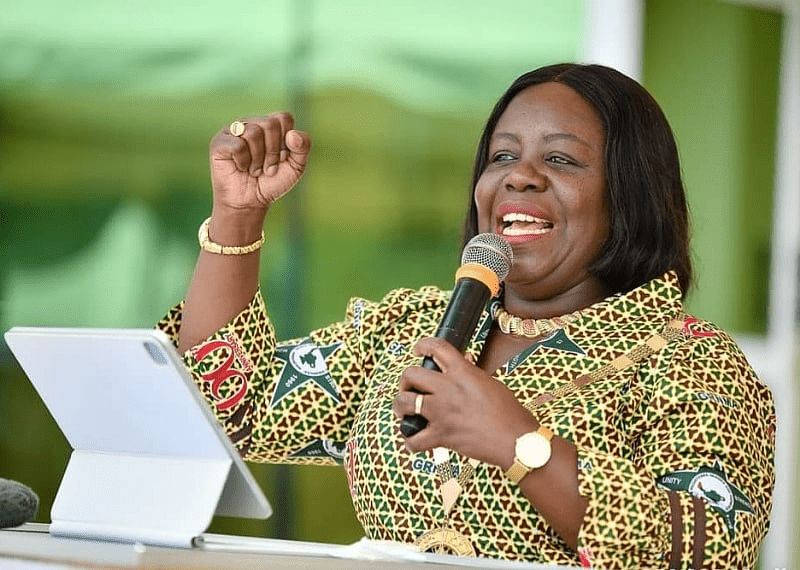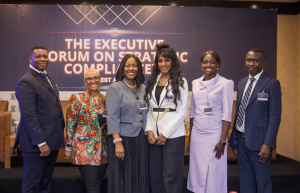
Speaker of Parliament, Rt. Hon. Alban Kingsford Sumana Bagbin, has underscored the importance of making Ghana’s laws easily accessible to all citizens, stating that democracy thrives only when everyone can freely access and understand the law.
In a speech read on his behalf by First Deputy Speaker, Bernard Ahiafor, at the opening ceremony of a two-day workshop on “Sustainable Public Access to Law for Ghana,” in Accra, on 16th July, 2025 Speaker Bagbin emphasised that no Ghanaian, whether a student, trader or farmer should face barriers in accessing legal information.
“The law should never feel out of reach or difficult to navigate. It must be accessible, clear, and reliable. Whether it’s a small business owner in Tamale understanding tax obligations or a farmer in the Volta Region seeking clarity on land laws, everyone deserves easy access,” he said.

The workshop, organised by Ghana Legal Information Institute (GHALII) and sponsored by the German Development Cooperation (GIZ) for stakeholders in Ghana’s legal and justice sectors, aims to chart a path toward the development of an authoritative national digital portal for law.
Speaker Bagbin noted that access to law is not just a matter of governance, but one of fairness and opportunity.“When individuals understand their rights and responsibilities whether about marriage, work, or access to services they can make informed decisions and defend themselves when necessary. This is especially vital for vulnerable or marginalized groups,” he added.
The Speaker hailed the workshop as timely, highlighting Parliament’s own digital strides, such as e-petitions and digitization of historic legislative documents. However, he stressed that a broader, collective effort is needed to achieve true accessibility.
“Parliament itself has embraced digital transformation from e-petition that connects citizens directly with legislators to the digitalization of our historic hands making it possible for every Ghanaian to explore how past parliaments have shaped our nation. However, Parliament cannot and should not act alone,” he said.
Founder of the GHALII and former Member of Parliament (MP), Osei Bonsu Amoah, emphasised the urgent need for every Ghanaian to have free and easy access to legal information, calling it a cornerstone for justice, democracy, and national development.

In an interview with the media, the former MP revealed that even Supreme Court Justices in Ghana have, at times, struggled to access newly passed laws highlighting a national gap in legal information dissemination.
“It is said that ignorance of the law is no excuse, but if the average person doesn’t have access to the law, is it fair to call them ignorant?” he asked.
He noted that GHALI, established a decade ago with support from Africa LII and GIZ, aims to bridge this gap by making Ghanaian laws, judgments, and legal resources freely available online. He stressed that universal legal access promotes business, governance, and rule of law.
In a keynote address by Mariya Badeva, lead of the AfricanLII project at the University of Cape, called for legal systems across Africa to make laws not only accessible but understandable to all citizens, especially vulnerable groups and entrepreneurs.
Madam Badeva emphasised that digitalization is central to the project’s mission to expand access to justice. “Accessibility promotes quality, control, and accountability not just in court decisions but in legislation itself,” she said.
She revealed that the GIZ-supported regional project, active in Ghana, Côte d’Ivoire, Senegal and Tanzania, focuses on improving justice access for women, youth, persons with disabilities, and prisoners. The initiative also targets small and medium enterprises, particularly women-led cross-border traders who face legal barriers.
She stressed the importance of harmonizing legal access across Francophone and Anglophone Africa, stating that “understanding the law should not be limited by legal jargon or geography.”
With a third project phase on the horizon, Madam Badeva called for deeper cooperation among Parliament, the judiciary, and citizens. “Ghana is more than Accra. Law must reach every citizen from number one to 35 million,” she noted.
Over the two days, stakeholders are expected to agree on a unified governance framework, outline practical workflows for law publication, and develop a sustainable funding model.
The post Laws must be accessible, clear and reliable –Speaker Bagbin appeared first on The Ghanaian Chronicle.
Read Full Story














Facebook
Twitter
Pinterest
Instagram
Google+
YouTube
LinkedIn
RSS